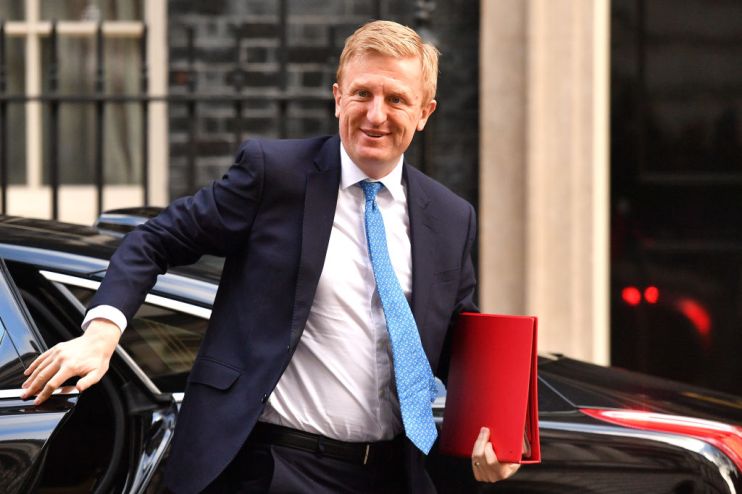BBC must avoid ‘narrow urban outlook’, warns new culture secretary

The BBC must avoid a “narrow urban outlook” if it is to survive in the modern media landscape, the new culture secretary has warned.
In his first major attack on the broadcaster, Oliver Dowden took aim at the BBC’s perceived bias and its failure to reflect the whole of the UK.
“If we’re all honest, some of our biggest institutions missed, or were slow to pick up, key political and social trends in recent years,” Dowden said at an event in London this morning.
“The BBC needs to be closer to, and understand the perspectives of, the whole of the United Kingdom and avoid providing a narrow urban outlook.”
Dowden, who replaced Nicky Morgan as secretary of state for Digital, Culture, Media and Sport (DCMS) last month, pointed to Ofcom research that showed some public service broadcasters were seen as less impartial than commercial channels such as Sky and CNN.
He added that the BBC needed “genuine diversity of thought and experience” to win over public trust.
The speech marks the government’s latest salvo against the BBC amid accusations of bias, while it has also launched a consultation into decriminalising non-payment of the licence fee — a move that would starve the broadcaster of roughly £200m in funding.
The culture secretary, who said he has the “unique honour of being the MP for Albert Square”, also called into question the broadcaster’s continued relevance amid the rise of new streaming rivals such as Netflix.
“When there is so much choice around, the BBC and our public service broadcasters need to think boldly,” he said.
“It must rise to the challenge of how it will ensure its sustainability as a crucial service in a rapidly changing world.”
Despite the searing criticism, Dowden stopped short of attacking the BBC’s existence, arguing instead for fundamental reform.
“The BBC is an institution to be cherished,” he said. “We would be crazy to throw it away but it must reflect all of our nation, and all perspectives.”
Bosses at Broadcasting House have already announced plans to axe 450 jobs and overhaul the broadcaster’s news output in a bid to save £80m by 2022.
But the crisis-hit corporation must also fend off concerns about its future funding model, the scrapping of the blanket free licence fee for over-75s and equal pay disputes.
Outgoing director general Lord Tony Hall and chairman Sir David Clementi are set to be hauled in front of MPs next week to face questions over the future of the BBC.
The DCMS select committee, chaired by licence fee sceptic Julian Knight, said it was concerned about the broadcaster’s preparations for dealing with a string of new challenges.